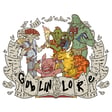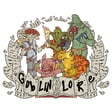
Episode 24: Cultural Risks of Rabiah
Hello, Podwalkers, and welcome to the Goblin Lore Podcast!
In our twenty-fourth episode, Alex and Joe talk about the Magic: the Gathering world of Rabiah, the setting of the expansion set Arabian Nights and based on the real-life folktales of The 1,001 Arabian Nights. They discuss how Magic has handled sets drawing upon real-world cultures throughout its history, and both the risks and rewards of drawing inspiration from cultures of real people.
Magic content creator Shivam Bhatt's blog post on his response to the creative design of the Kaladesh expansion also forms a strong lived experiential counterpoint to Alex and Joe's perspectives, and you can find it here.
____________________________________________
We have launched our new Patreon! You can join currently at the $1 tier, which gets you access to our private Discord server where you can talk all things lore, life, and love with other gob-heads like yourself.
____________________________________________
Remember: we've reached 300 followers on Twitter! Keep the word of mouth going; with every 100 new followers, we will do a random prize draw for one lucky follower!
____________________________________________
You can find the hosts on Twitter: Joe Redemann at @Fyndhorn, Hobbes Q. at @HobbesQ, and Alex Newman at @AlexanderNewm. Send questions, comments, thoughts, hopes, and dreams to @GoblinLorePod on Twitter or GoblinLorePodcast@gmail.com.
Goblin Lore is proud to be a member of the Geek Therapy Network (on Twitter at @GeekTherapy).
Opening and closing music by Wintergatan (@wintergatan). Logo art courtesy of Greg Staples, design by Joe Redemann.

